Bill Frist is a nationally acclaimed heart and lung transplant surgeon, former U.S. Senate Majority Leader, and is actively engaged in health policy and education reform. In this episode, Bill takes us through his long and varied career in medicine, politics, and business, which includes establishing the organ transplantation program at Vanderbilt as well as rising from the lowest-ranked member of the U.S. Senate to the Majority Leader in two terms. We discuss some of the most significant moments of his time in the Senate, such as advocating for AIDS prevention programs’ funding and addressing complicated issues like stem cell research and the end-of-life issues raised by the Terri Schiavo case. We also hear his first-person account of what happened behind the scenes on September 11, 2001, his frustration with our lack of preparation for the pandemic, and his thoughts about the current state of U.S. politics. Finally, we talk about his current endeavors in health policy and education reform.
Subscribe on: APPLE PODCASTS | RSS | GOOGLE | OVERCAST | STITCHER
We discuss:
- Bill’s decision to pursue medicine and do organ transplants (3:40);
- The miraculous nature of organ transplants: History, Bill’s work, and the most exciting things to come (12:00);
- Frist’s experience building up the heart transplant program at Vanderbilt (21:45);
- The famous rivalry between surgeons Denton Cooley and Michael DeBakey (29:15);
- How the medical field can attract bright young people to pursue medicine (33:00);
- Bill’s decision to leave medicine and run for the US senate (38:00);
- The value in having scientists and physicians in Congress (47:30);
- A discussion on whether or not senators should have term limits (55:30);
- The highly polarized nature of politics, and how we can fix it with empathy (1:00:30);
- Bill’s time in the Senate and quick rise to Senate Majority Leader (1:05:30);
- The lifesaving impact of the President’s Emergency Plan for AIDS Relief (PEPFAR) under George W. Bush (1:15:15);
- How Bill reversed course on his view of the value and morality of stem cell research (1:19:45);
- Complex end-of-life decisions, and Bill’s role in the infamous Terri Schiavo case—a story that captures the conflict among law, morality, and improving technology (1:30:00);
- Remembering the events of September 11th from Bill’s perspective in the Senate (1:49:45);
- The coronavirus pandemic: Bill’s accurate 2005 prediction, and a discussion about future preparedness (1:56:45);
- The divided state of US politics, and how we can come together (2:06:45);
- How experience in medicine and politics is shaping Bill’s current endeavors in business, reforming education, palliative care, and more (2:12:45); and
- More.
Bill’s decision to pursue medicine and do organ transplants [3:40]
Frist’s early medical career
- His father and both brothers were docs
- Always assumed he’d do something health related
- Saw that it was gratifying and what his dad was able to do for people
- Tried other things (public and international affairs) but came back to medicine
You were not pre-med and studied other things at Princeton. Do you think that encouraged you to do other things besides medicine in your career?
- Frist interned in Washington DC for Congressman Joe Evins from Tennessee during high school and college, wrote for a local newspaper over the summer, etc. [6:44]
- But back then, it was very unusual to have other interests outside of medicine when applying to med school: usually pre-med track, work in a lab, etc.
- Went to Harvard Med, then a 6-year residency and fellowship, all at Mass General Hospital in Boston
Organ Transplantation Medicine
- Frist wanted to do transplant surgery
- Frist had stayed at Mass General because of the early work with kidney transplants and immunology
- Harvard ended its heart transplant program because it was too experimental and it could do much more proven preventive care at a similar cost
- Frist then went to Stanford for a transplant fellowship
- Christiaan Bernard did first heart transplant in South Africa around 1966-67
- Then ~100 were performed in Texas, but most patients died and the program was shut down
- Norman Shumway (whom Peter called “the pioneering transplant surgeon of our era”) was Frist’s mentor at Stanford
- He was outside the mainstream
- Did ~10 years of lab research before bringing it to patients
- Others like Bernard were too brash, programs shut down because doing lots of surgeries with low survival rate [9:45]
Norman Shumway, Frist’s mentor at Stanford, “figured out the science, the immunology of [heart transplants], the cardiac biopsies, the instruments of it, and in a very deliberate way. And I tell that long story because it really had a huge impact on me, that the science is really fundamental. It’s important. Until you get the science right, you should not be taking this to the clinical world. Know the facts, get rid of the misinformation, do clinical trials, don’t prematurely take things to the field.” – Bill Frist
- MA General had a 50% mortality rate and concluded that its program was not doing the greatest good for the greatest number of patients
- Frist strongly disagreed
- He knew that transplants could save hundreds of thousands of lives
- And enable people who would otherwise have died in 6 months to live for decades longer
The miraculous nature of organ transplants: History, Bill’s work, and the most exciting things to come [12:00]
- So he went to Stanford because Shumway had “systematically had spent 20 years developing heart transplantation and continued to do that” as the field evolved
- Peter wishes he had met Thomas Starzl, who wrote the book The Puzzle People: “I can’t recommend it highly enough to people who love stories about the history of medicine.”
- Idea that you face failure after failure but patients have no other choice, so you keep going [12:45]
- What Peter took away from book
- 1) you must believe the situation will get better
- 2) you have to have a personality where you won’t give up after multiple failures because you can focus on what progress there has been [13:16]
- Progress has been made
- Have made progress in immunology: in early 1980s only had prednisone and 6-Mercaptopurine (6-MP) [14:04]
- Some progress was surgical techniques
- Heart would be inflamed right after surgery, which frustrated many surgeons
- Shumway figured how to go in through the neck to heart [14:55]
- Only drugs they had at first were prednisone and azathioprine (Imuran)
- Then in 1982, could use cyclosporine, which was accidentally discovered from a fungus
- Dropped mortality from roughly 50% to 20%
- Can adjust the immunological treatment so not so severe that patients die from infections [15:26]
“I think the important point in all of this … is that science is [an] evolutionary process.” – Bill Frist
- The great transplant surgeons “had that deliberate, that discipline, that focused process in taking these insurmountable challenges that were impossible to do and systematically, over a period of time, capturing the best of the best, even when there are lots of losses along the way, ultimately be successful.” [16:01]
- The surgical giants – people like Alfred Blalock, William Halstead, Norman Shumway, C. Walton Lillehei, and Thomas Starzl – and their staff – fundamentally changed surgery
{end of show notes preview}
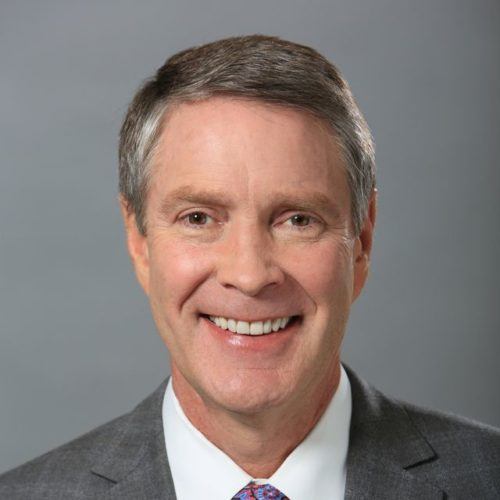
Bill Frist, M.D.
Senator William Frist, M.D. is a nationally-acclaimed heart and lung transplant surgeon, former U.S. Senate Majority Leader, founding partner of Frist Cressey Ventures and chairman of the Executives Council of the health service investment firm Cressey & Company. He is actively engaged in the business as well as the medical, humanitarian, and philanthropic communities. He is chairman of both Hope Through Healing Hands, which focuses on maternal and child health and global poverty, and SCORE, a statewide collaborative education reform organization that has helped propel Tennessee to prominence as a K12 education reform state. As a U.S. Senator representing Tennessee from 1994 -2006 (the first practicing physician elected to the Senate since 1928), Senator Frist served on both the Health (HELP) and the Finance Committees responsible for writing all health legislation. He was elected Majority Leader of the Senate, having served fewer total years in Congress than any person chosen to lead that body in history. His leadership was instrumental in the passage of the 2003 Medicare Modernization Act and the historic PEPFAR legislation that provided life-saving treatment globally to over 12 million people and reversed the spread of HIV/AIDS worldwide. Honoring his pledge to serve just two terms, he left the Senate and his position as Majority Leader in 2006. As a leading authority on healthcare, Senator Frist speaks nationally on health reform, government policy, global health, education reform, and volunteerism. In 2019 he launched “A Second Opinion” podcast, which addresses challenging healthcare issues of today from three distinct vantage points: policy, medicine, and innovation. He is Co-Chair of the Health Project at the Bipartisan Policy Center and co-founder of Aspire Health. Aviation is one of Frist’s passions, and has proved to be essential in all aspects of his life. [billfrist.com]
Bill’s website: https://billfrist.com/
Bill’s podcast: A Second Opinion
Bill on YouTube: Senator Bill Frist, MD
Bill on Instragram: senatorbillfrist
Bill on Facebook: Senator Bill Frist, M.D.
Bill on Twitter: @bfrist


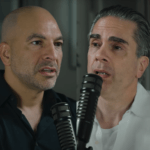
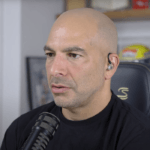
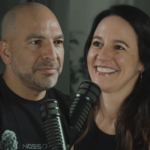
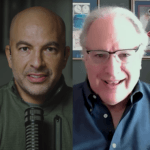
Happy Birthday for Bill! 22nd February
You didn’t feel the need to question his conflict of interest/concern for insider trading regarding his sale of HCA stock?